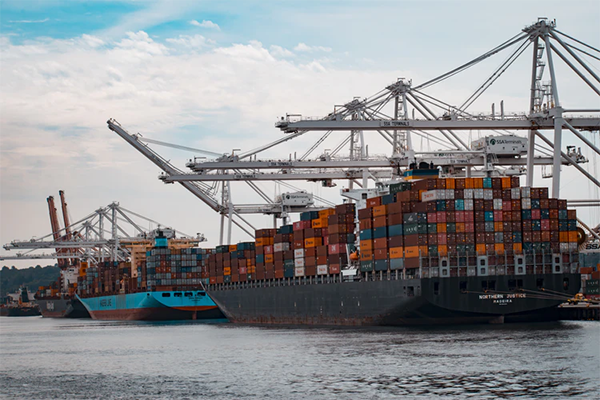Just like every other crisis, the COVID-19 crisis has been poking holes in conventional business processes. One of the areas that have been heavily affected by the crisis is the supply chain sector. With minimum in-person interactions being a priority, businesses that rely heavily on supply chains, like trucking companies, have had to adapt to their changing environment.
Conventional Supply Chains – Unsplash
On the other hand, government-enforced travel restrictions and the closing of borders has also made the free flow of goods tougher. While most supply chain issues existed before the pandemic hit, they have been accentuated by the crisis. Luckily, there are many ways businesses can adapt to this ever-changing environment.
Here are a few supply chain trends businesses can embrace as they try to thrive during this crisis:
Safety Stock Will Be a Priority
Just-in-time inventory systems are ideal for predictable markets and supply chains. When a business can predict that they will have access to their suppliers, they can make orders based on their daily, monthly, or weekly demands. For instance, mining companies with reduced heavy machinery operations may opt to source Costex tractor parts when their equipment needs servicing. This strategy saves businesses inventory storage and handling costs.
However, given the fragility of today’s supply chains, businesses might choose to be a little less risk-tolerant. In turn, having a safety stock will be ideal. In case a new regulation cuts them off from suppliers, the fact that they have some inventory left could fuel their daily operations until they find a viable solution.
Embracing Near-Shoring Material Sourcing and Manufacturing
Off-shoring manufacturing and material sourcing has always seemed attractive for most businesses, especially if it is budget-friendly. Companies have managed to find markets where they can enjoy cheaper labor, less stringent tax laws, and cheaper raw materials.
Sadly, this business operations strategy has been shaken by recent events, let alone the COVID-19 pandemic. In 2019, businesses had to weather trade wars and costly natural disasters, to name a few challenges. The pandemic just exacerbates these imminent threats.
Since getting products from outside-country has been strenuous for some businesses, not to mention more costly, local alternatives could seem more attractive. Near-shoring manufacturing and material sourcing will definitely be a short-term strategy, but it’s tough to predict whether it will stick in the long-term.
Bimodal Supply Chains Will Be Embraced
Simply put, embracing bimodal supply chains means using two different but coherent ways of running a supply chain. While mode one will focus on the supply chain’s predictability, mode two will look for innovative ways to shift how work is done. This model works for businesses that need to offer customers predictable services and innovate at the same time.
As a form of lean management, it allows businesses to innovate without disrupting normal business. Once a strategy in mode two proves viable, it can then be used in mode one. At a time where flexibility is proving more important than ever, companies are being forced to innovate. Bimodal supply chains provide an effective way to experiment with innovations before launching them.
Diversification Is Key
Companies know that focusing their efforts on one area alone can spell losses to their business models. Natural disasters and geopolitical issues could easily threaten their businesses. However, some businesses were willing to flip the coin since some of these risks didn’t happen often or weren’t as impactful.
With COVID-19 and its associated risks looming large, diversification of supply chains has become vital. Businesses have to work with multiple vendors, factories, and geographical locations to spread risks. In turn, this will force them to re-negotiate contracts to make room for these new changes.
Conclusion
Conventional supply chains have always had loopholes, but remained resilient. COVID-19 has simply made working with such loopholes a lot harder. As long as businesses can embrace the strategies above, circumventing COVID-19 related threats to their survival will become easier.





